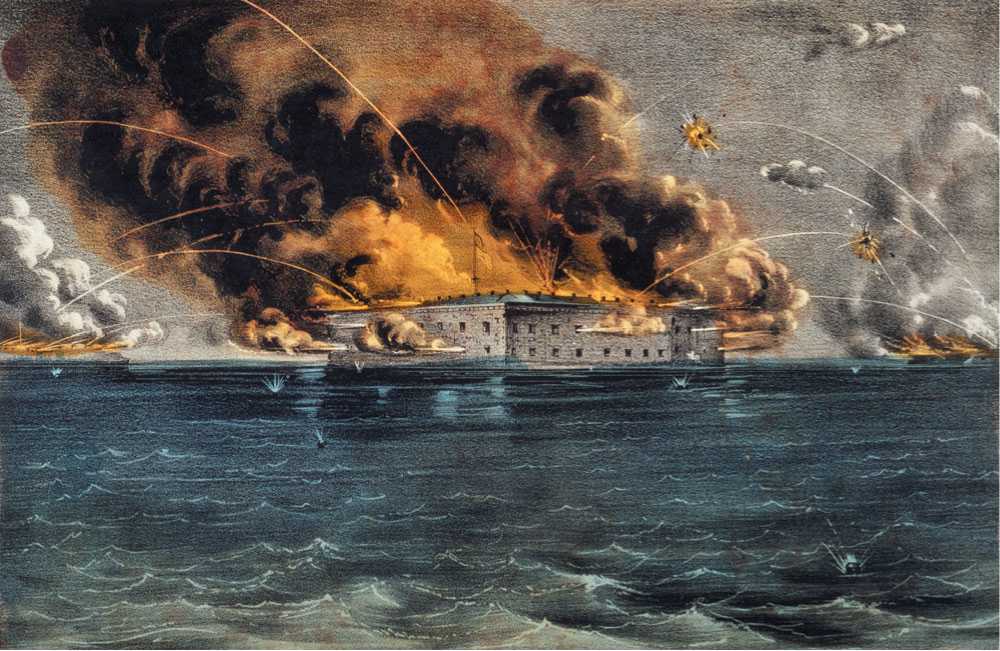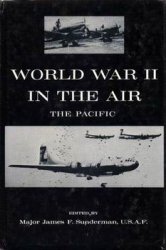While denying the legality of secession, Lincoln had not decided what to do next. The Confederates had seized most federal property in the Deep South. Lincoln admitted frankly that he would not attempt to reclaim this property. However, two strongholds, Fort Sumter, on an island in Charleston harbor, and Fort Pickens, at Pensacola, Florida, were still in loyal Union hands. Most Republicans did not want to surrender them without a show of resistance. To do so, one wrote, would be to convert the American eagle into a “debilitated chicken.” Yet to reinforce the forts might mean bloodshed that would make reconciliation impossible. After weeks of indecision, Lincoln took the moderate step of sending a naval expedition to supply the beleaguered Sumter garrison with food. Unwilling to permit this, the Confederates opened fire on the fort on April 12 before the supply ships arrived. After holding out for thirty-four hours, Major Robert Anderson and his men surrendered.
The attack precipitated an outburst of patriotic indignation in the North. Lincoln issued a call for

This lithograph by Currier and Ives gives an erroneous impression of the "battle.” Major Robert Anderson, commander of Ft. Sumter, did not want to expose his men to the looping mortar shells and artillery of the Confederates, so he manned only the cannon on the lowest floor, just above the water. The top two levels of guns were seldom fired.
75,000 volunteers; his request prompted Virginia, North Carolina, Arkansas, and Tennessee to secede. After years of crises and compromises, the nation chose to settle the great quarrel between the sections by force of arms.
Southerners considered Lincoln’s call for troops an act of naked aggression. When the first Union regiment tried to pass through Baltimore in mid-April, it was attacked by a mob. The pro-southern chief of police telegraphed the Maryland state attorney: “Streets red with blood. Send. . . for the riflemen to come, without delay. Fresh hordes will be down on us to-morrow.” The chief and the mayor of Baltimore then ordered the railroad bridges connecting Baltimore with the northern states destroyed. Order was not restored until Union troops occupied key points in the city.
The Southerners were seeking to exercise what a later generation would call the right of selfdetermination. How, they asked, could the North square its professed belief in democracy with its refusal to permit the southern states to leave the Union when a majority of their citizens wished to do so?
Lincoln took the position that secession was a rejection of democracy. If the South could refuse to abide by the result of an election in which it had freely participated, then everything that monarchists and other conservatives had said about the instability of republican governments would be proved true. “The central idea of secession is the essence of anarchy,” he said. The United States must “demonstrate to the world” that “when ballots have been fairly and constitutionally decided, there can be no successful appeal except to ballots themselves, at succeeding elections.”
This was the proper ground to take. A war against slavery would not have been supported by a majority of Northerners. Slavery was the root cause of secession but not of the North’s determination to resist secession, which resulted from the people’s commitment to the Union. Although abolition was to be one of the major results of the Civil War, the war was fought for nationalistic reasons, not to destroy slavery. Lincoln made this plain when he wrote in response to an editorial by Horace Greeley urging immediate emancipation: “I would save the Union. . . . If I could save the Union without freeing any slave, I would do it; and if I could save it by freeing all the slaves, I would do it; and if I could do it by freeing some and leaving others alone, I would also do that.” He added, however, “I intend no modification of my oft-expressed personal wish that all men, everywhere, could be free.”




 World History
World History









